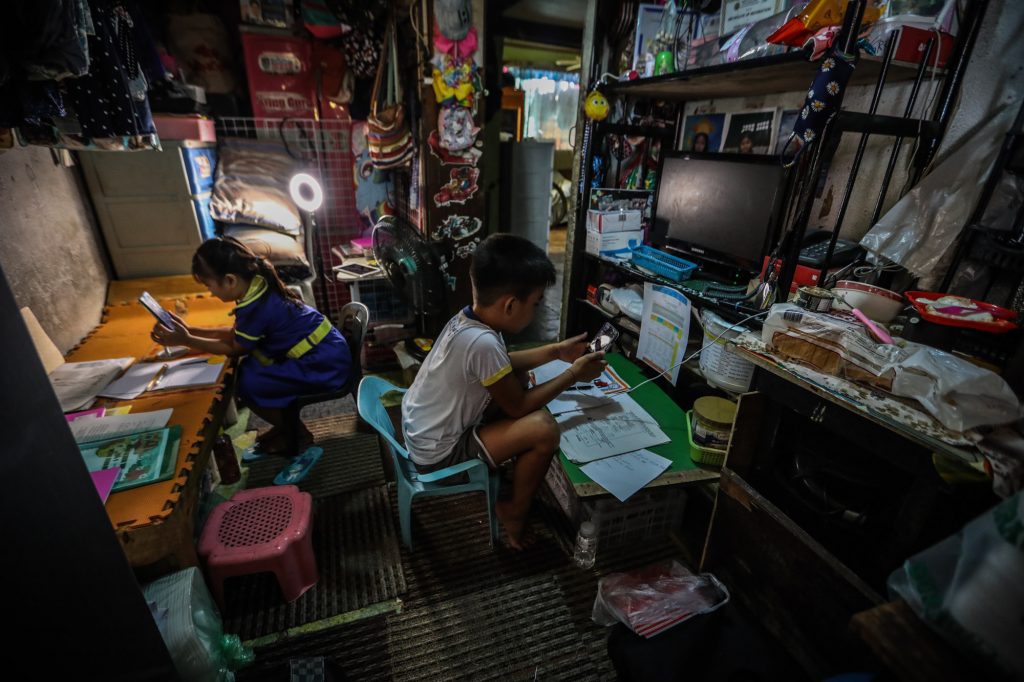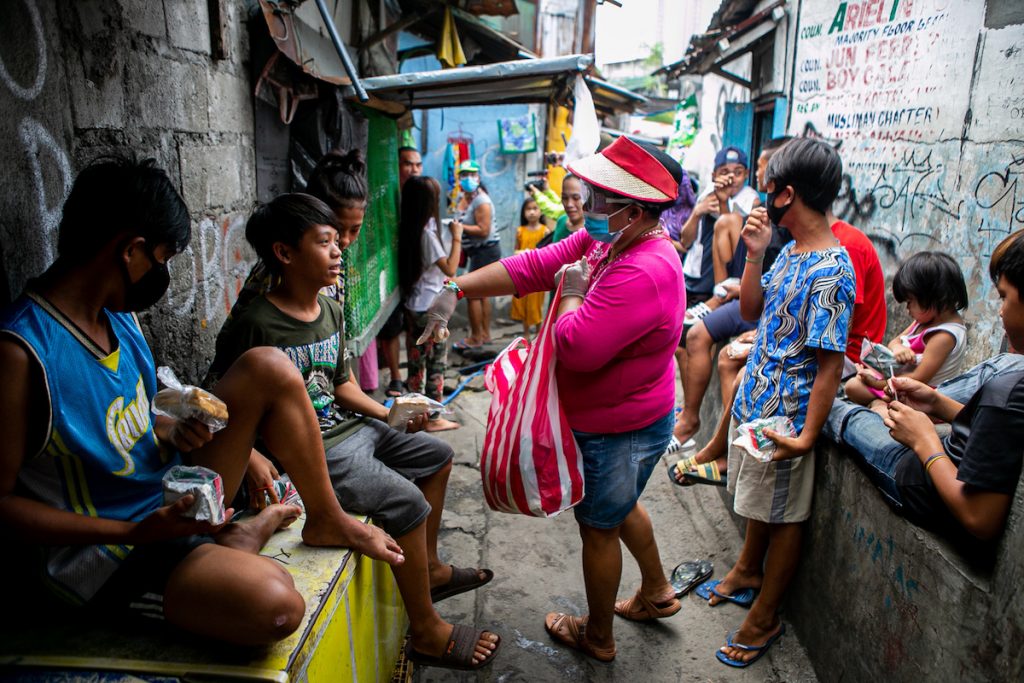
Child rights group Salinlahi Alliance for Children’s Concerns called for children’s safety following the Philippine government’s decision to ease quarantine restrictions in areas where there are less COVID-19 cases.
The group welcomed the easing of age restrictions that allows children five and above to go outdoors, but called for a “more comprehensive program” to address problems being faced by children as a result of the health crisis.
The Philippines on Friday loosened coronavirus restrictions to allow children out of their homes so they can return to parks, playgrounds, and hiking trails in the capital region and some other provinces after a slowdown in infections.
Children aged five and above, who were previously confined indoors, will also be permitted to go to outdoor tourist sites and dining establishments, and play non-contact sports outside.
The children, however, must be supervised by adults and should observe minimum public health standards, such as wearing of face masks and social distancing.
“Rather than adopting piecemeal approach, the government must provide concrete solutions to pressing issues concerning children such as poverty, malnutrition, mental illnesses and increasing cases of child abuse and violence,” said Eule Rico Bonganay, secretary general of Salinlahi.
“The impact of the pandemic to children is so immense and it necessitates concrete state intervention by implementing pro-children programs and policies,” he said.
Bonganay said that during the height of the pandemic, children were “miserably neglected and abandoned by the government by virtually locking them up inside their houses without clear mechanisms to assist their needs.”
“Worse, the government has implemented a bungled education program which caused further stress among school-aged children,” said Bonganay.
The child rights group urged the government to seriously address hunger and malnutrition among children by providing food and cash assistance for poor families while ensuring employment with decent wages for workers.

“The worsening situation of poverty and hunger in the country has alarmingly led to the increase in number of children engaging in labor and sex trade for survival,” said Bonganay.
Salinlahi has called on the government to ensure that relevant information about COVID-19 as well as health safety kits are being provided for children.
COVID-19 infection rates in the Philippines have fallen from a peak in March and April as more people become vaccinated, but officials have said some restrictions must be retained in and outside the capital region given the threat posed by new variants.
Schools in the country remain shut, social gatherings are still restricted and public transport services are operating below capacity.
The Philippines on Monday reported 5,204 new COVID-19 infections, pushing the country’s total tally to 1,478,061, as eight laboratories failed to submit data on time.
The Department of Health said the new cases brought the total active cases in the country to 49,128, of which, 89.6% are mild, 4.7% are asymptomatic, 2.5% are severe, and 1.5% are in critical condition.
The total number of recoveries rose to 1,402,918 after 5,811 more patients recovered from the viral disease.
The death toll climbed to 26,015 with 100 new fatalities.
Unlike other Southeast Asian neighbors, the Philippine has not yet detected community transmission of the highly transmissible Delta variant.
Authorities have given the greenlight for children aged 12 and above to be vaccinated, but not until other priority groups have been inoculated. – with a report from Reuters
Source: Licas Philippines
0 Comments